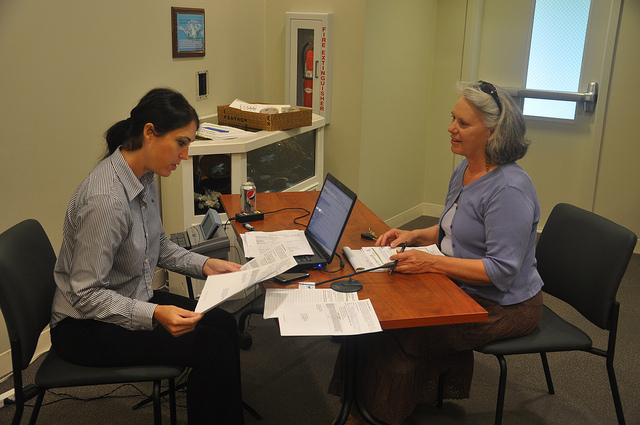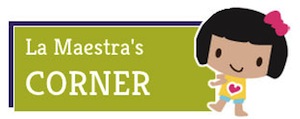
 I cannot believe it is that time of the year already! Parent-Teacher Conferences are just around the corner. It seems like it was yesterday when I was running around trying to set up my classroom and getting ready to start the new school year. But, time flies. It is already November and before we know it, a new calendar year is upon us.
I cannot believe it is that time of the year already! Parent-Teacher Conferences are just around the corner. It seems like it was yesterday when I was running around trying to set up my classroom and getting ready to start the new school year. But, time flies. It is already November and before we know it, a new calendar year is upon us.
Parent-Teacher Conferences are a great opportunity to check on your child’s progress and mastery of academic standards. With Common Core implementation already rolling in many schools, it is always helpful to be proactive and know what the new changes/expectations in curriculum are. For example, with the new standards, there is a major emphasis on reading informational text (not just narrative), writing opinion pieces, and supporting both reading and writing with textual evidence. When it comes to math, children are now spending more time on major concepts; therefore, giving children the opportunity for more practice and understanding.
So, do you know what specific questions to ask during this precious time? Conferences do not last more than 20 minutes. Actually on average parents and teachers meet for about 15 minutes.
Below I have compiled a few tips to help you navigate this time with ease and more importantly – success:
- Have a discussion with you child prior to attending the conference. Ask him/her about his/her academic progress. What are the areas he/she feels successful? What areas have room for improvement? As a parent, you want to make sure you walk into the conference informed of your child’s strengths and weaknesses. Educators WANT parents to be involved. If you have an honest understanding of where your child stands, it will be a much more productive conversation
- Draft a list of questions you want to ask. If you have them written down, chances are that you will ask them.
- Ask about your child’s reading level and what that means
- Is his/her reading at grade level?
- What about your child’s fluency and expression?
- Homework. How long should it take to complete?
- Mathematics. How is your child performing? (Fact fluency, number sense, geometry, problem solving, etc.)
- How is your child’s writing? Is he/she writing fluently?
- What genres is he/she most successful and what genres should he/she spend more time practicing?
- Leave the conference with a plan of action. Discussing progress is great, but what next? Make sure you discuss a plan of action with your child’s teacher. What do you and him/her commit to do and how is progress going to be determined? If your child needs help mastering multiplication tables (for example), what are you going to do at home to help?
- Request to see work samples. Your child’s teacher will most likely have plenty of samples for you to see. But, what does an exemplary paper look like? What should your child be aiming at? I am not saying this for you to compare your child to others, but to rather see where he/she should be
- Assume always the best intentions. This applies to every aspect of our lives. Assume positive intent and keep in mind that teachers wan the best for your child
- Give your child feedback about the conference. Children want to hear how they are doing. Do not forget to share the major points of your conference with your child
The truth is that I could draft an infinite list, but ‘keeping it short and sweet’ is always a plus. Remember that you and your child’s teacher are a team – together you can work great things.
Happy conferring,
Kelly
Photo by U.S. Army Corp.


Thanks for this list! Our conferences are next week.
Hi Stephanie!
Glad you found the article helpful. Good luck on your conference(s) next week.
Kelly
I wish I had this earlier today for our conference. All in all, I think we covered most of it. Thank you!
Hi!
I am sure you did just as great! Glad you felt you covered most at the conference.
Thank you for reading,
Kelly
Great notes, my conference is today, ¡voy preparada!
Yey!!!
Happy to see you found the tips helpful.
Abrazos,
Kelly
Nhà cái cá cược bóng đá được nhận xét là đảm bảo nhất, uy tín nhất phải đạt được các yếu tố như: khả năng thanh toán, deposit và rút tiền nhanh, nhiều odds, tỉ lệ cược cao và hấp dẫn, giao diện đẹp và thân thiện, có nhiều chương trình khuyến mãi lớn, nhân viên hỗ trợ chu đáo, nhiệt tình… Với kinh nghiệm đỏ đen nhiều năm, chúng tôi nhận xét và xếp hạng nhà cái cá cược bóng đá uy tín nhất trên bao gồm các yêu cầu và cung cấp những thông tin mới nhất để mọi người lựa chọn được nhà cái phù hợp cho riêng mình
Nice post. I was checking continuously this site and I’m impressed! Extremely useful info especially the last part I care for such info much. I was looking for this particular info for a long time. Thankyou and best of luck.
I have fun with, lead to I found just what I used to be looking for.You have ended my four day lengthy hunt! God Bless you man. Have a niceday. Bye
Hi there, i just wanted to drop you a line to say that i thoroughly enjoyed this particular post of yours, I have subscribed to your RSS feeds and have skimmed a few of your posts before but this one really stood out for me. I know that I am just a stranger to you but I figured you might appreciate the appreciation Take care and keep blogging.
You’ve got a good weblog here! would you like to produce some invite posts on my blog?
Hello, I enjoy your weblog. Is there something I can do to get updates like a subscription or something? I’m sorry I am not acquainted with RSS?
I loved as much as you will receive carried out right here.The sketch is attractive, your authored material stylish.nonetheless, you command get got an edginess over that youwish be delivering the following. unwell unquestionably come more formerly again since exactlythe same nearly a lot often inside case you shield this increase. Anmäl detta inlägg
Hello, I enjoy your weblog. Is there something I can do to get updates like a subscription or something? I’m sorry I am not acquainted with RSS?
Ok so I am thinking about removing my website from Tumbler and get it to a WordPress website. I believe this is a wordpress site right? If it is, may I ask where you got the theme? Thanks a bunch!
I heard that I just have to leave my name and number on the Facebook page for a chance to win Steve Miller tickets Friday but I cannot where to do thisCan you help me please?Thanks